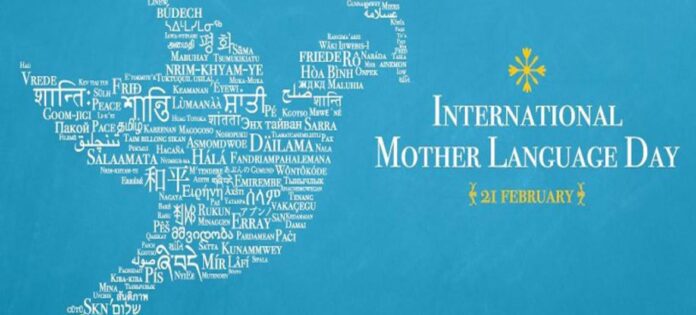My mother tongue is the heartbeat of my soul,
The rhythm that echoes within me.
It’s the language that I learned as a child,
The first words that I spoke with glee.
It’s the language of my mother’s embrace,
The words that she whispered with care.
It’s the language of my father’s wisdom,
The stories he told with flair.
My mother tongue is the thread that weaves,
The fabric of my identity,
It’s the language of my heritage,
The essence of my humanity.
It’s the language of my dreams and hopes,
The voice of my deepest desires.
It’s the language of my heart and soul,
The flame that forever inspires.
February 21 is celebrated as International Mother Languages Day around the world. The day was established by the United Nations Educational, Scientific and Cultural Organization (UNESCO) in 1999 to promote linguistic and cultural diversity and multilingualism. This year’s theme is “Multilingual Education – A Necessity to Transform Education.” On this very day, Peshawar is hosting its second version of Peshawar Literature Festival, which adds to the celebrations. Over the next five days, this festival will host a plethora of panel discussions on a multitude of topics, including languages, history, social and political issues, as well as the great poets, politicians and social activists of the region, the likes of great Bacha Khan and Ghani Khan.
With the cause of celebration, there is reason to worry as well: festivals like these make you realize how disconnected we are from our history, and from the wisdom of those who have written in our local languages. Most people are unable to read local languages fluently or write them, and most of what they speak is heavily loaded with Urdu and English terms. This issue, of being disconnected from, however, has roots in our education.
The United Nations recognizes primary education in the mother tongue as a basic human right and an effective tool for promoting social inclusion, cultural diversity, and sustainable development. SDG 4 calls for “inclusive and equitable quality education and lifelong learning opportunities for all.” and includes the provision of education in mother languages, which is critical to ensuring access to education for all, particularly for marginalized and minority groups. However, we have denied the majority of our school-going children this basic right, and the focus is rather on learning Urdu and English. These languages are important as they provide a certain social and economic standing and come what opportunities and the economy is built around them, but what we fail to effectively cater to in our education policy is whether we teach Urdu and English for language acquisition or as a medium of instruction.
Pakistan is home to about 72 mother languages, which speaks of the linguistic diversity of the country less talked about. This presents a huge opportunity for making education accessible and reforming it, especially at the primary level. Tariq Rehman, the prominent Pakistani linguist, has written extensively on language policy and language planning in Pakistan. He emphasizes the importance of multilingual education in promoting linguistic diversity and cultural inclusion. He argues that mother languages are essential for identity formation and emotional development and that denying children the opportunity to learn in their mother tongue can have negative effects on their academic performance and psychological well-being. He highlights the need for policymakers to recognize the importance of multilingual education and to provide adequate resources for its implementation.
Altaf Anjum, who has written extensively on education and single national curriculum (SNC), provides a very simple yet interesting insight into learning. He compares the education a child receives at home pre-school where he learns to communicate in the mother tongue effectively within the first 4-5 years of his life, but his school fails to deliver even after 10 years of education as most of the students are unable to read or write effectively the languages (Urdu and English) that school promised to impart. Alongside the problem of quality of teaching, part of the failure is because of language. Failure to understand what the kid is being taught, as both the text language and medium of instruction are different from the language, he is able to comprehend and apprehend. This calls for multilingual education in Pakistan. and the need for a shift in mindset towards linguistic diversity, recognizing the value of all languages, not just the dominant ones. Our education system has traditionally favored Urdu and English at the expense of regional languages, leading to a loss of cultural and linguistic diversity. This is a result of the misplaced assumption that English is the way to economic prosperity and modernity, thus placing English as a hegemonic language and failing to recognize our own languages, even though we have the example of China as a success story where Chinese is widely spoken, recognized as official language, used as a medium of instruction and also as the language of wide circulation. The beautiful words of Arundhati Roy always remind us of the importance of multilingualism: “The ministry [the ministry of utmost happiness] was written in English but imagined in many languages”. This is an illustration of the need for multilingual education so we can understand and imagine knowledge in many languages and be effective at what we learn. On this International Mother Languages Day, let us celebrate linguistic and cultural diversity by recognizing that multilingual education will not only improve our education but also our understanding of the self, the family, the community, the district, the province, and ultimately the nation. In the pursuit of nation-building, our languages and the associated identities have been the prime casualties! No m




